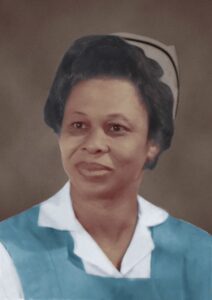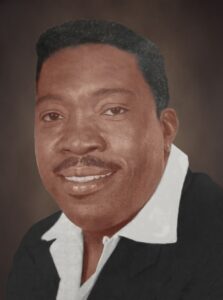
Photo courtesy the Perkins family
Fifty-three years ago, Trudie and Robert Perkins initiated the fight for equal pay for Black nurses after discovering that Black nurses with the same training and credentials as white nurses were paid less than their white counterparts.
Now, a portion of Gamble Street will be renamed after the power couple in honor of their hard work.
In 1971, Tallahassee Memorial Hospital was owned by the city of Tallahassee. Trudie Perkins and her co-worker, Lizzie Smith, noticed African Americans complaining about racial discrimination and the difference in pay between whites and Black nurses. While Perkins and Smith were employed at TMH, they became active in the fight against discrimination.
The civil rights couple helped 25 hospital workers who complained of discrimination by filing complaints with the United States Department of Justice. Perkins and Smith were terminated by TMH during their fight for equal pay.
The two activists jump-started the fight for equality and racial diversity in Tallahassee’s workforce.
United States District Court Judge Winston Arnow, who was overseeing Perkins’ case, handed down a decision to monitor a formal consent decree.

Under terms of the consent decree, the city agreed to fill half of all vacancies with minority applicants until the long-term goal of 23.7% Black representation had been achieved in eight separate job categories, ranging from maintenance workers to administrators.
Local historian Delaitre Hollinger described the mission to get more people involved with the history of the two activists.
“I like to call them a civil rights power couple in Tallahassee because they did all their work together. They never did it separate, they did all their civil rights activism as one. They were two extraordinary individuals. I’m just looking forward to more people learning about them and their accomplishments,” Hollinger said.
The two activists both graduated from Florida A&M University in the 1940s.
After they graduated they purchased property on Adams Street for the purpose of building a gas station to serve residents who lived on the south side. The Perkins filed petitions to have their property rezoned to permit business construction. The petitions were denied due to a revolt by several prominent Black educators but the Perkins’ remained eager to serve the people in the community.
The Perkins’ open their business in the Bond community and called it Perkins Service Station & Beauty Salon. The business provided an array of services to Bond residents, as well as the faculty, staff and students at FAMU.
Perkins Service Station was the only Black-owned service station with three gas pumps, according to Hollinger. The Perkins provided sufficient levels of gas to residents participating in the Tallahassee bus boycott.
Their daughter, Jacqueline Perkins, is eager to see her parents be recognized.
“My youngest brother, who is now deceased, felt my parents should be recognized in some way because of the work that they have done. The efforts over the years that frankly nobody seems to think that it is a big deal, but It is a big deal. We did not push anything at first because my parents’ work was done. After all, it had to be done,” she said.

Jaqueline Perkins followed in her parents’ footsteps and served in the Bond community several times throughout the years and served as the chair of the neighborhood crime and safety prevention committee.
Her mother, along; with Lizzie Smith and others, formed a community health organization to help provide better health care in the underserved communities, as well as provide transportation for underprivileged and disabled individuals to and from health care centers and doctor’s offices.
Robert Perkins was one of the only Black residents who advocated for the construction of recreational facilities for Black youth. Perkins and Charlie Jenkins loaded their vehicles with Black youth and took them to play at white recreation centers. Soon after, the city allocated funding to construct a recreation center for Blacks known as Jake Gaither Community Center.
Jamil Perkins, a FAMU mathematics and the Perkins’ grandson said his grandfather influenced him to become a mathematics teacher. The elder Perkins served as a professor/instructor at both FAMU and Florida State University.
“Mainly it’s about my grandparents’ work getting noticed. The people in Tallahassee that has benefited from my grandparent’s work are embedded in my grandparents. People like Andrew Gillum, becoming the mayor, he probably didn’t know of them, but because of the work of my grandparents, he was able to get the job as the mayor. Also, my grandpa influenced me to become a mathematics teacher with all the conversations we had. My grandpa was a mathematician at heart when that happened after I got my degree in engineering from one of the professors at FAMU, Dr. Anderson gave me the idea to become a mathematics teacher following in the footsteps of my grandpa. Having those conversations with my grandpa will always help me in my mathematics. My grandfather had the same desire for mathematics as I did. It was a good thing to have in our family,” Jamil Perkins said.